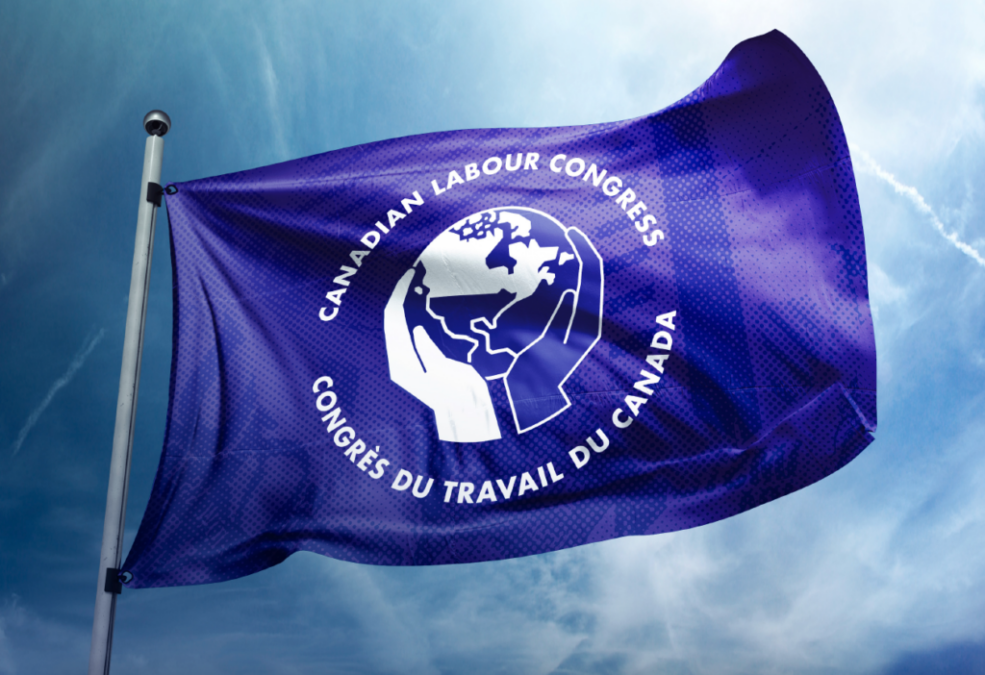
To achieve gender equality, Canada’s decision makers must prioritize investments in care
Canada’s unions are marking Gender Equality Week by calling on the federal government to reduce and redistribute women’s unpaid care work and help fix Canada’s broken care systems.
“Investments in care are essential if we’re going to reduce and redistribute women’s unpaid work and pave the way for women to take on paid work, or to access education or training,” said Bea Bruske, CLC President. “If women are going to have equal opportunities and equal access to the labour force, then Canada must address its care crisis. In addition to unpaid care duties, many women work in care jobs: jobs that are undervalued, underpaid and often have poor working conditions. We need drastic change to achieve true gender equality.”
It is estimated that Canada’s care economy employs roughly one in five workers in the Canadian labour force. Whether it’s health care, education, child care, elder care, domestic work, social services, care for persons with disabilities, community centres and more, care work is crucial to the wellbeing of our communities and our economy.
However, years of chronic government underfunding, coupled with increased privatisation and a worrying shift of care to for-profit businesses has left us with a broken care system. According to the OECD, Canada falls near the bottom among wealthy countries in its public expenditure on social services. This has led to a decreasing level of quality of care as well as an overall erosion of decent working conditions for workers in the care economy.
This is why Canada’s unions recently launched Show We Care, a national campaign aimed at highlighting care workers in Canada and calling for investments to fix the struggling systems.
In Canada, women make up nearly 75 percent of Canada’s care workers and research shows that their involvement in care work, particularly unpaid care, is a critical factor in shaping women’s employment and trajectories for lifetime earnings. Statistics Canada estimated that in 2019 alone, the economic value of unpaid household work in Canada was equivalent to between $515 billion and $860 billion. That amounts to a quarter or as high as 37 percent of Canada’s nominal GDP that year.
“Gender Equality Week is a significant opportunity for our federal government to take stock of the gender inequities in our broken care systems and commit to action,” said Siobhán Vipond, Executive Vice-President of the CLC. “It’s past time for federal decision makers to take action and show they care by repairing Canada’s failing care systems.”
Unions are calling on the federal government to address the care crisis by:
- Forming a Care Economy Commission to study, design and implement a comprehensive Canadian care strategy;
- Making significant and on-going investments in public social infrastructure and care work to ensure an equitable and sustainable economic recovery;
- Implementing standards and investments to address shortfalls and inequitable levels of care for seniors and persons with disabilities, including in long-term care, home care and palliative care;
- Ensuring that the new investments in early learning and childhood education in every province and territory address the child care workforce crisis;
- Ratifying the International Labour Organisation’s Convention 189 to ensure decent work and protections for domestic workers; and
- Establishing pathways to permanent residency for migrant workers, many of whom deliver care, and ensure migrant workers have comprehensive worker protections to prevent exploitation and abuse.
“Our jobs, our families and our economy depend on having our care needs met,” said Bruske. “We need federal leadership to make Canada a place where everyone has the care they need, and caregivers have the recognition, support and compensation they deserve.”








